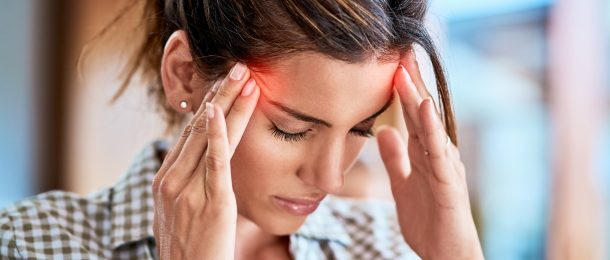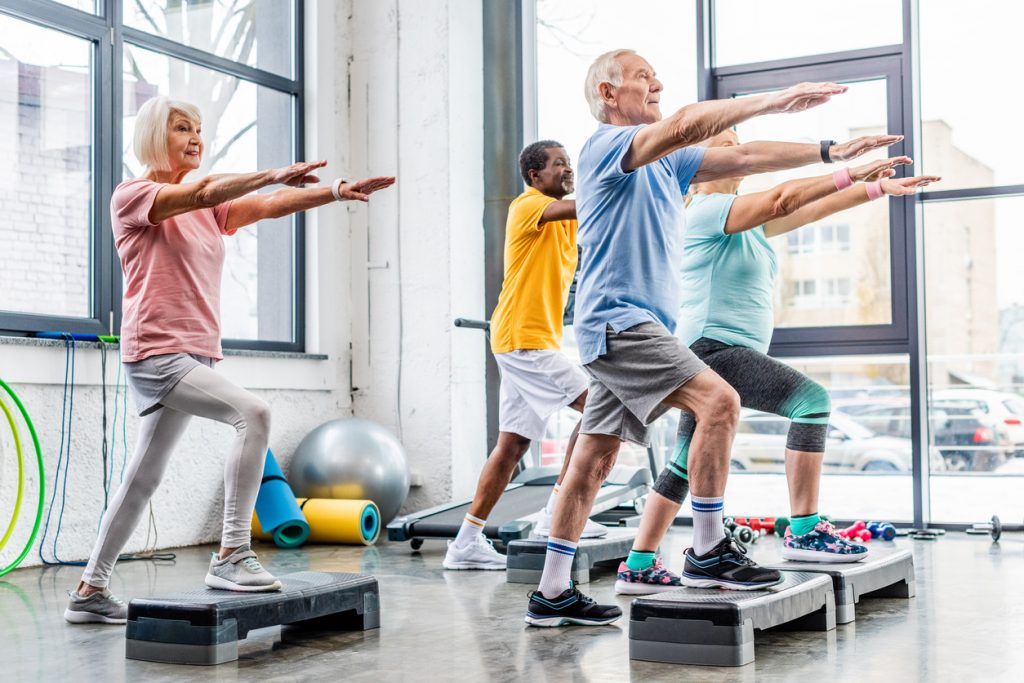Budget Workouts and Everyday Habits for Senior Fitness

Life with chronic pain can be extremely challenging. Whether your healthcare provider has prescribed medication, suggested acupuncture, recommended surgery, or explored other treatment options, you should establish healthy senior fitness habits to try to manage (or at least not trigger) your pain and keep yourself as healthy as possible.
The Importance of Exercise for Senior Fitness and Wellness
No matter your age, senior fitness is important for your overall health and wellness. According to the Mayo Clinic, regular exercise helps prevent or manage numerous health issues, including
- Diabetes
- Heart disease
- High blood pressure
- Several types of cancer
It can also help reduce stress, anxiety, and depression as well. For older adults, physical activity can be particularly beneficial because it increases strength, balance, and flexibility, and thus reduces the risk of falls, which are considered a leading cause of death in seniors.
If you have chronic pain, talk to your physical therapist or doctor. Discuss the types of exercises may be ideal for your condition. For example, stretching and yoga can increase flexibility and loosen muscles, which can, in turn, reduce pain. Studies also have shown that brisk walking is beneficial for weight management, heart health, and also chronic pain.
Tips for Working Out at the Gym
For older adults, the cost of a gym membership can be a burden. Fortunately, many seniors have access to the SilverSneakers program, a free fitness membership offered through many Medicare Advantage and Medigap plans. With 14,000 fitness locations around the country, you may have access right around the corner. Take a look at your current healthcare coverage to see if you’re eligible. If you’re not, consider changing your coverage during this year’s annual election period.
Tips for Exercising at Home
If you prefer to work out at home, you can set up a workout space. Be sure to include affordable, reliable gear and equipment to help you meet your senior fitness goals. If you need to buy equipment like free weights, a stationary bike, or a treadmill, turn to retailers like BestBuy. Search online for coupons, a BestBuy promo code, and cash back offers to help you get everything you need and stay within budget.
Getting the Proper Amount of Sleep
One of the most important things you can do for your overall health is to get enough quality sleep. Most adults require 7 to 9 hours each night. Lack of sleep can cause irritability, fatigue, and cognitive issues. Studies have shown that long-term sleep deprivation can lead to health problems including weakened immunity, as well as an increased risk of:
- Anxiety
- Depression
- Heart disease
- Inflammation
- Obesity
- Other conditions
Sleep apnea, chronic pain, frequent urination, and other age-related problems can cause older adults to have trouble falling asleep, sleeping deeply, and staying asleep. Avoid alcohol, caffeine, and electronics in the evening hours. Talk to your healthcare provider about possible strategies and treatments to improve your sleep quality.
Eating a Balanced Diet
According to the Academy of Nutrition and Dietetics, a healthy diet is one that is rich in fruits and vegetables, whole grains, low-fat dairy products and various types of protein and healthy fats found in lean meats fish, beans and nuts. Additionally, a healthy eating plan should limit saturated fats, trans fats, salt, and added sugar to a minimum.
For older adults, nutrients like calcium and vitamin D are important for bone health, B12 for energy levels, and omega-3 fatty acids for inflammation and immunity. Talk to your healthcare providers about any specific dietary needs based on your current health status.
Final Points
Chronic pain makes otherwise routine aspects of everyday life more difficult and more time-consuming. You can take steps to overcome the challenges without draining your bank account. You can’t be assured of a long life.
But, you can manage pain and lower your risk of a number of diseases by establishing a health plan that includes good senior fitness habits such as exercising regularly, sleeping properly, and eating well.
This article was written by personal trainer Jason Lewis. Find more of his work at strongwell.com.
Your Head Hurts? Use These 9 Tips to Ease Headache Pain

There can be many reasons why your head hurts, but regardless of the type of pain, this guide will help you to ease your headache pain.
It can be a dull pain in your forehead or soreness in the back of your head or neck. It may be a pressure that may not be severe, but it is just enough to interfere with your day. For some, the aches become debilitating. For others, just a continual annoyance. You may even feel nausea, sensitive to light, dizzy and a tightness in areas around the head.
What you are experiencing is a headache.
Headaches and migraines are very common in the United States. A recent study found that 18 percent of the participants reported having multiple headaches every month. The World Health Organization explains headaches are the third leading cause of people losing years to disability.
What Are the Different Types of Headaches?
Understanding the type of headache you suffer from will allow you to successfully treat it:
– Migraines
If your head hurts, it may be because of a migraine. Migraines usually appear on the side of your head, with intense throbbing. They can be caused by stress, anxiety, hormonal changes, and environmental triggers.
– Tension Headaches
Tension headaches are dull pains felt on both sides of your head. You may also feel pressure behind your eyes and tenderness around or on your head, caused by dehydration, bad posture and lack of exercise. Dehydration can also cause hangover headaches.
– Cluster Headaches
Cluster headaches, while more prominent in men, can feel like a burning sensation behind the eyes. They don’t typically last more than a few hours but can appear several times a day.
– Exertional Headaches
Exertional headaches happen when you over-exert yourself, usually through exercise, with symptoms of throbbing pain in the head.
– Hypnic Headaches
Hypnic headaches are much rarer than the others and usually affect people in their fifties or later. These are headaches that wake you up at night, while you are sleeping.
– Other Types
Other types of headaches include medication or rebound headaches, which are caused by taking too much or withdrawing from medications. This can include caffeine too.
Sinus headaches happen because of swelling in your sinuses, usually caused by an allergy or infection.
Some women get headaches when they have their menstrual period. This is most likely related to hormone production.
Finally, headaches can come from a head injury.
Because headaches cause pain of all kinds, it’s important you work with your pain management specialist to determine the right treatment.
Your Head Hurts? Try A Pain Management Specialist
A pain management doctor will evaluate you to determine if your headaches are primary or secondary, which can be related to another medical problem, genetics or environmental issues.
Your specialist will examine your symptoms to see if they are related to your nervous system or some other cause. Together, you will develop a treatment plan to ease your headaches. Below are nine of the recommendations your specialist may recommend if your head hurts constantly.
1. Prevention
It’s always best. Working with your pain management specialist, you can make lifestyle changes that will help you prevent headaches. Lifestyle changes can include avoiding headache triggers like caffeine and alcohol.
Eating healthy, stress management and sleep hygiene are additional things you can improve to prevent headaches.
2. Medication
Because headaches are painful and can be debilitating, interfering with your ability to function, medication may be a good option.
Your pain management specialist will determine the right medicine for your needs. Medicines can range from triptans that reduce inflammation and restrict blood vessels to ease the headache.
Other medicines can include opiates, NSAIDs, antidepressants, oxygen and even Botox injections.
3. Acupressure
Stemming from traditional Chinese medicine, acupressure has become a popular treatment for headaches in the United States. Your body has acupoints or pressure points that when pressed, can relieve tension and increase blood flow, alleviating your headache.
4. Hydration
Many problems, from dry skin to headaches, are the result of dehydration. There is much research proving the importance of drinking water for health, including preventing dehydration and headaches related to it.
Drinking water throughout your day is easy. Work with your doctor to determine the exact amount you need for your body to stay hydrated.
5. Massage
Even if you can’t get an appointment right away with your local massage therapist, there are massage techniques you can do on your own to help ease a headache. If your head hurts, you can gently massage the area of the pain, or nearby pressure points.
You can also buy a handheld massage tool to keep on hand.
6. Essential Oils
The oils extracted from plants have strong aromatic effects. Scents like peppermint and lavender have been known to ease headaches.
Essential oils can be applied directly to the skin for topical use. You can also inhale the scent from the oils or put the oil in a diffuser that can release the oils throughout your home or office.
7. Vitamin and Mineral Maintenance
Your body needs vitamins and minerals to thrive. Today’s modern diet, where you live, and how much time you spend outdoors can affect your vitamin levels.
Have your doctor test your blood to see if you need vitamins. A lack in Vitamin B and D are often associated with headaches.
Also, magnesium helps many bodily functions operate. It is also known for helping alleviate headaches quickly.
8. Yoga and Meditation
Headaches are many times related to your stress levels. Admit it, your life is busy and can seem overwhelming at times. This type of stress can lead to dull, constant head pain, and to severe migraines.
Yoga and Meditation have been studied for years and there is great evidence showing both can help you relax and ease headaches.
9. Drink Caffeine
Yes, earlier you were advised to avoid caffeine. That was in reference to unnatural or added in caffeine like you find in sodas.
There are some plants that provide natural caffeine and when consumed, ease headaches. You can find natural caffeine in herbal teas like green and black teas.
Final Thoughts
If your head hurts a lot, seek the advice of a pain management specialist. With many options to ease headaches, your doctor can find the right solution so you can go back to enjoying life without the worry of a potential headache interfering.




